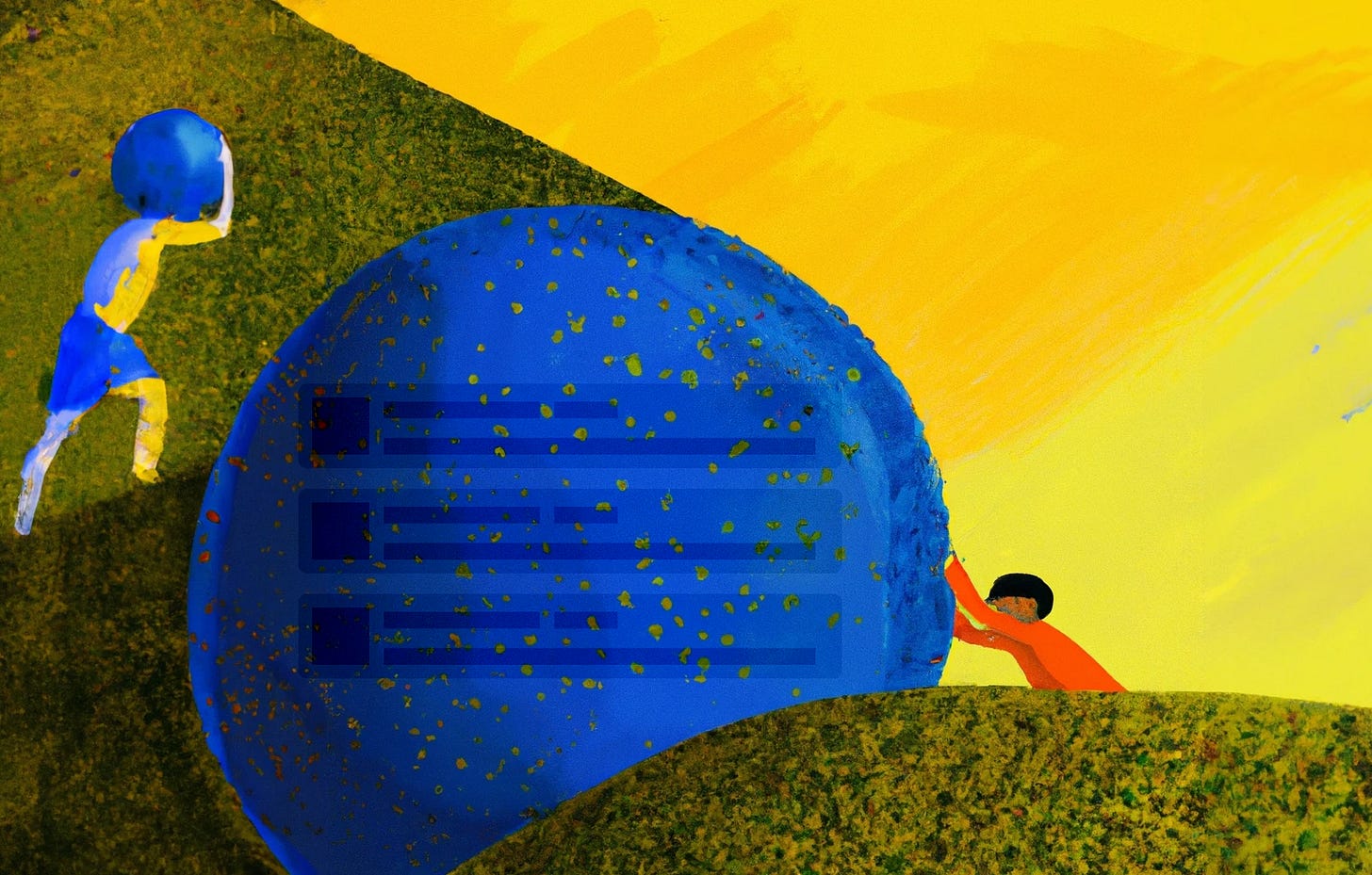The Tools You Own End Up Owning You
How solving by subtraction is the antidote to information overload.
We've all been there - endlessly scrolling through Slack channels and pinging colleagues, trying to find the information we need. The tools that are supposed to make us more productive have taken over, complicating work and exhausting us.
Almost every company has tried and failed to implement a centralised content management system (CMS), hoping to control the information avalanche. Platforms like Highspot, Seismic, Notion and Confluence promised to help employees quickly find everything they need. But the truth is, every system is a CMS if you squint. Even if they’re not positioned that way.
Customer notes live in Salesforce, call recordings in Gong, email flows through Outlook, and valuable tribal knowledge sits in Slack threads. Trying to wrangle all this into a single source of truth is impossible - information volume grows far faster than anyone can manually organise. Why? Because information grows and changes dynamically, but the CMS is a static system. It’s like trying to win at tennis by standing in one spot and hoping the ball comes your way.
So what happens? Employees sprint to stay still, desperately searching and asking questions to keep up. Subject matter experts burn out answering the same things over and over. New employees take months to get up to speed. Customers experience delayed and potentially misinformed responses from these knowledge gaps. The tools you own end up owning you.
The shift towards more remote work only accelerated this fragmentation. Overwhelmed by notifications, Slack channels get muted..Back-to-back "project update" meetings are put on the calendar as everyone tries to stay in sync. Time is taken away from the work that matters most.
Ironically AI is the exact tool that can give us back our humanity and help us deal with information overload. It excels at ingesting and making sense of vast information volumes; consolidating, transforming, and presenting relevant knowledge on demand. An "AI assistant" is always available to surface insights from across systems when needed, instantly, no matter the hour.
Instead of anxiously pinging co-workers, employees can directly query their company’s institutional and tribal knowledge to get what they need. Meetings focused on status updates and repeated questions in Slack are slashed. New hires reach competency faster.
What can we do today to start solving this problem? Take a look at the tools and platforms you use everyday and ask if the technology serves you, or the other way around. Are you creating more information overload today or less? With decreased noise, potential for genuine connection, creativity and deep work is unlocked.
The future of work is more human, not less.



